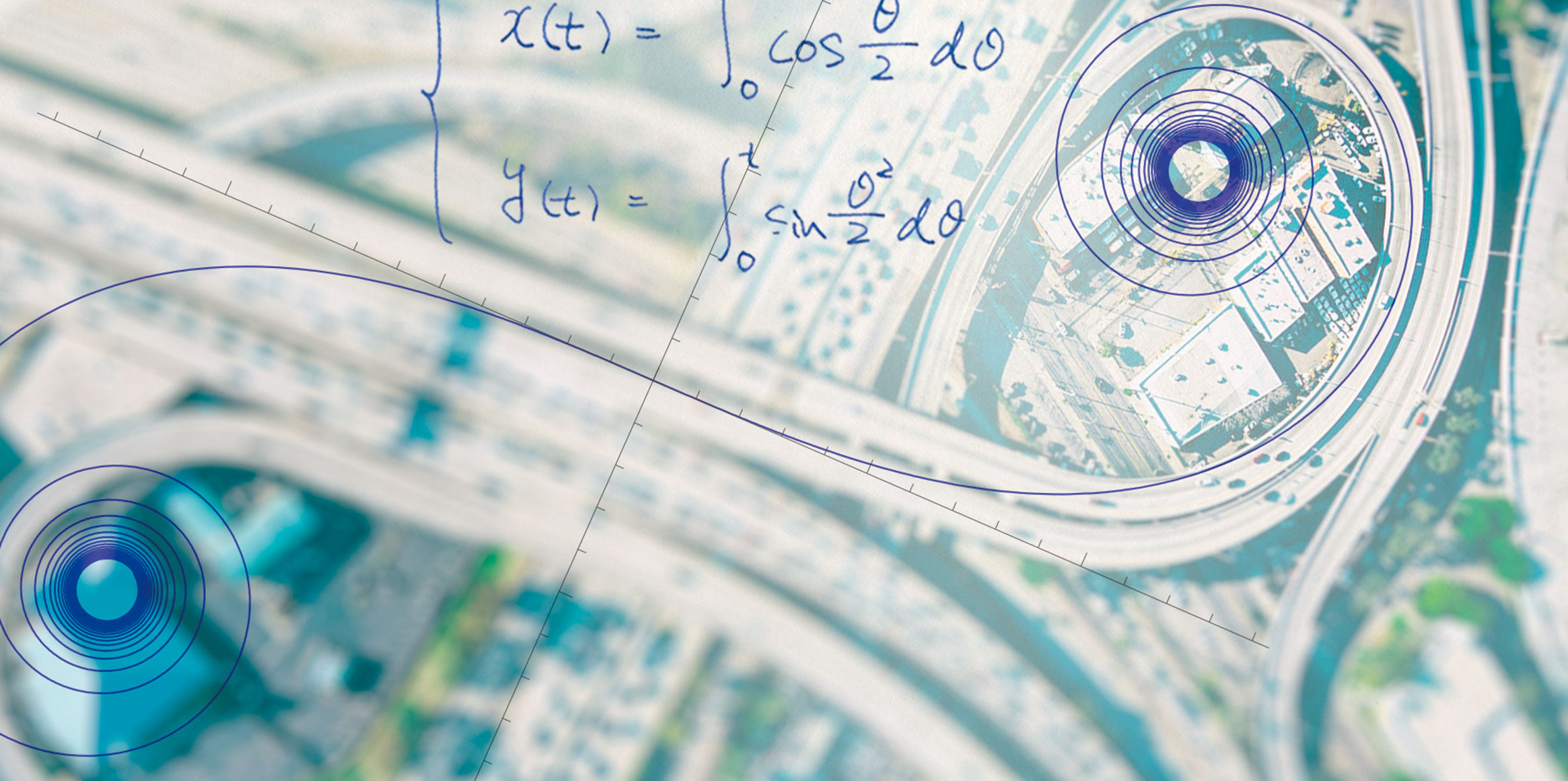Mathematics composes theories in a logical and abstract manner, and serves as an important position in supporting the fundamentals of science. This department cultivates human resources who, in these modern times where mathematical education is directly and indirectly required in various sectors, can respond to such needs.
Research Groups & Research Areas
-
Analysis
The beginnings of analysis can be found with Archimedes, but it was after the birth of calculus in the 17th century that this area fully developed. Today, calculus is used to solve various problems, and is applied in a wider field than normal functions.
Ito Research Group / Saito Research Group
-
Algebra
In Algebra, we examine the nature of aggregates to which some kind of operation is applied, including vector spaces, groups, rings, and fields. One could also say that algebra is a "language" for various types of mathematics. For example, algebra can precisely describe the fact that it is not possible to divide an angle by three using a ruler and a compass, or that a ball is different from a swim ring.
Kataoka Research Group
-
Geometry
Geometry starts with Klein's geometry, which looks into the properties of shapes which are invariant in a certain transformation group. This was then merged with the theory of general relativity and developed into Riemannian geometry, Lorentzian geometry, and also symplectic geometry.
Nitta Research Group / Sako Research Group
-
Topology
The concept of whether points in a Euclidean space are close to or distant from each other can be described by use of distance, and therefore it is possible to discuss the continuity of a map. General topology generalizes this kind of concept. In topological geometry, we look into the nature of continuously deformed invariant shapes.
Satoh Research Group
-
Probability / Statistics
Even if a phenomenon appears to be chaotic at first glance, some regularity may be found if it occurs many times, and this can be used for surveys and forecasts. Further, for Brownian motion and the like, which are constantly subjected to a chaotic force, we can find regularities from equations.
Shimokawa Research Group
-
Discrete Mathmatics
This area includes graph theory and discrete geometry. It is widely applied in engineering, and research is performed from a purely mathematical approach. Since no background knowledge is required, even junior high school or high school students can understand discrete mathematics. We also consider methods for efficiently introducing this area to education while drawing on its advantage.
Kotani Research Group
-
Mathematics Education
To become a mathematics teacher, you first need a deep understanding of mathematics. And to reflect fresh mathematical results in class, teachers must continue research by themselves. In this area, you will learn practical methods to teach mathematics, and also build up a foundation for lifelong mathematics research.
Sako Research Group
List of Faculty Members
| Name | Title | Research Area | Keyword |
|---|---|---|---|
| KOTANI Keiko | Professor | Foundations of mathematics/Applied mathematics | Graph theory |
| SAKO Akifumi | Professor | Geometry | differential geometry, quantum field theory, noncommutative geometry |
| SATOH Takao | Professor | Algebra Geometry |
Cohomology of groups, Combinatorial group theory Topology(Mapping class group of surfaces, Johnson homomorphisms, Character variety) |
| NITTA Yasufumi | Associate Professor | Geometry | differential geometry, complex geometry |
| Saito Isao | Associate Professor | Basic analysis | |
| SHIMOKAWA Asanao | Associate Professor | Foundations of mathematics/Applied mathematics | Applied statistics, Machine learning, Survival time analysis, Tree-structured model |
| TADOKORO Yuuki | Associate Professor | Geometry | |
| KATAOKA Takenori | Junior Associate Professor | Algebra | |
| ANDO Yuki | Assistant Professor | Foundations of mathematics/Applied mathematics | |
| KIMURA Naoki | Assistant Professor | Geometry | low-dimensional topology, Poisson geometry |
| NOGAYAMA Toru | Assistant Professor | Basic analysis | |
| SANKA Masahiro | Assistant Professor | Foundations of mathematics/Applied mathematics | Graph theory |
| SHIRAISHI Densuke | Assistant Professor | Algebra Geometry |
Number Theory Arithmetic Geometry |
Information on Career Paths
-
Information Industry30.1%
-
Graduate School19.4%
-
Incumbent continuation6.5%
-
Education, Learning Support5.4%
-
Finance, Insurance4.3%
-
Miscellaneous Services3.3%
-
Advanced courses of Science2.1%
-
Professional and Technical Services2.1%
-
Accommodations, Eating and Drinking Services2.1%
-
Machinery and Appliances2.1%
-
Wholesale and Retail Trade1.1%
-
Civil Servant1.1%
-
Other (Persons Planning on Continuing Education, Studying Abroad, etc.)20.4%

